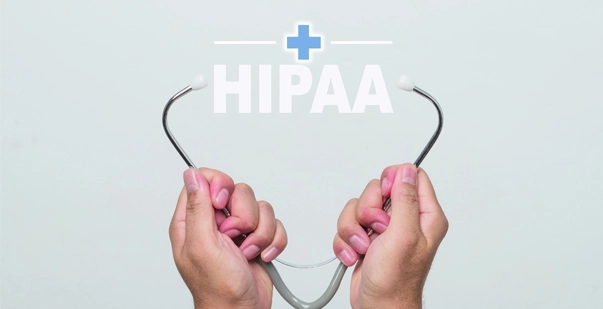Welcome to our extensive guide to HIPAA, the Health Insurance Portability and Accountability Act applicable in the healthcare service sector. It is also crucial to understand HIPAA if you are a patient and have a health plan. Whether you are a healthcare service provider or a patient, you can stay up-to-date on HIPAA privacy and security laws. You can take a course that teaches HIPAA. You will be well-informed about the latest HIPAA rules and policies. Do you know that you can get HIPAA training online? All you have to do is register yourself on the website to get started. And you are good to go!
With this guide, you will learn:
- What is HIPAA?
- What is protected by HIPAA?
- What kinds of violations can occur?
- What are the consequences of violating the HIPAA rules?
Let’s get started!
What is HIPAA?
HIPAA translates into the Health insurance portability and accountability act, a comprehensive law in the United States since 1996. It protects the confidentiality of people’s medical information and keeps these details away from any breach. It is commonly referred to as – protected health information (PHI). PHI covers every detail about a person’s health. It also allows healthcare firms to keep records of all the treatments that people have undergone and have gone through. Their financial and personal information is also included. Considering the sensitivity of information, it is crucial to protect it.
HIPAA privacy rules require that the health records of people be kept confidential and secure. It establishes strict guidelines for the handling and storage of personal health information of the patients. HIPAA requires organizations to maintain detailed records of any disclosures of personal health information.
HIPAA also grants patients several rights. It includes asking for access to their medical records. They also have the right to demand any updates or corrections to their health records.
Which businesses are covered by HIPAA?
After understanding what HIPAA is, it is essential to understand who it applies to. HIPAA applies to organizations and individuals that provide, transmit, or receive healthcare information.
It applies to the following:
- Healthcare providers such as doctors, hospitals, clinics, and nursing homes
- Health plans such as those offered by insurance companies, HMOs, and employers
- Health care clearinghouses
- Business associates of covered entities, such as claims processors, billing companies, and IT vendors.
The HIPAA Privacy Rule applies to all forms of individually identifiable health information. This includes all data recorded in digital, paper, and verbal modes of communication and records.
HIPAA regulations also bind business associates of covered entities. Therefore, they must comply with the Privacy Rule. Business associates must enter into contracts with covered entities. This guarantees the protection of PHI and the application of the necessary protective measures. Business associates must also ensure that their subcontractors comply with HIPAA.
What are the various HIPAA violations?
HIPAA violations happen when someone mishandles a person’s PHI. This could be sharing it with someone not authorized to have it. Additionally, it involves a need for more sufficient data protection measures.
Examples of HIPAA violations include:
- Disclosing PHI without permission
- Failing to provide access to PHI when requested
- Failing to secure PHI
- Using PHI for marketing or advertising without permission
Consequences for violating HIPAA rules and regulations
There are various penalties for HIPAA violations, depending on their severity. There could be civil or criminal penalties based on the breach.
- Minimum civil penalties of $100 per violation can be imposed.
- Maximum civil penalties of $50,000 per violation may be charged.
- Other violations could lead to annual penalties of up to $1.5 million.
- Criminal penalty fines for HIPAA violations can be up to $250,000 or 10 years in prison.
Additionally, covered entities may be subject to state laws. They may also impose fines, damages, and criminal penalties as extra sanctions. Investigations into potential HIPAA violations fall under the Office for Civil Rights purview.
Conclusion
HIPAA regulations were created to protect people’s health information. It ensures it is only used for authorized purposes. Every company that manages PHI is subject to it. HIPAA offenses have severe penalties. Therefore, every healthcare service firm should understand the HIPAA law. They need to protect all the health-related information they have access to by taking the necessary measures.













